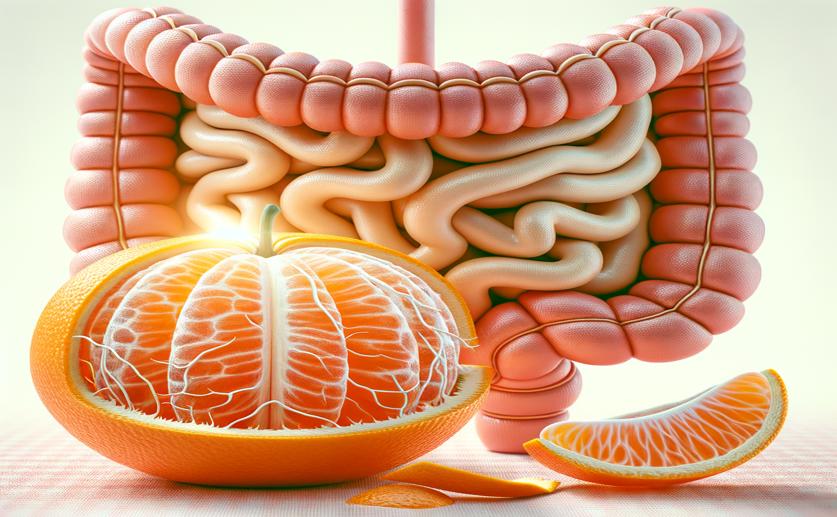
Navel Orange Peel Fiber Reduces Gut Inflammation via Key Cellular Pathways
Greg Howard
14th May, 2024

Image Source: Natural Science News, 2024
Key Findings
- A study by Nanchang University found that bound polyphenols (BPP) from navel orange peel significantly reduce gut inflammation
- BPP lowered the production of harmful inflammatory markers and cytokines, protecting the intestinal barrier
- BPP modulates key inflammatory pathways (NF-κB and JAK-STAT), reducing inflammation and preserving gut health
References
Main Study
1) Bound polyphenols in insoluble dietary fiber of navel orange peel modulate LPS-induced intestinal-like co-culture inflammation through CSF2-mediated NF-κB/JAK-STAT pathway.
Published 13th May, 2024
https://doi.org/10.1039/d3fo05579e
Related Studies
2) Changes in intestinal tight junction permeability associated with industrial food additives explain the rising incidence of autoimmune disease.
3) Macrophages in intestinal inflammation and resolution: a potential therapeutic target in IBD.
4) Origin and physiological roles of inflammation.



 17th March, 2024 | Jenn Hoskins
17th March, 2024 | Jenn Hoskins